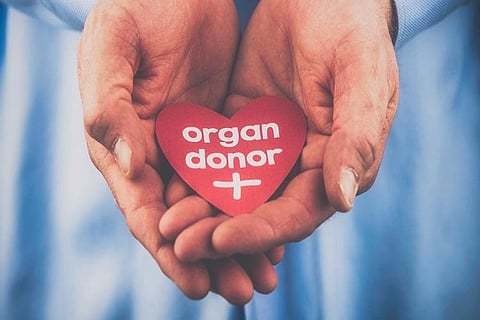

42-year-old Srinivas C is a resident of Bengaluru who had to make one of the most difficult decisions of his life in June – his 21-year-old nephew had been declared brain dead following a road traffic accident, but he had the option to donate the young man’s organs, a choice which he made and believes was the correct decision.
August 13 is recognized as Organ Donation Day in India.
Dr Rajiv Lochan is a Senior Consultant Surgeon at Aster CMI Hospital in Sahakar Nagar, Bengaluru who advocates for the need to bring more awareness about the donation of organs.
“India recently set a world record in the Guinness Book of Records for the highest number of organ donation pledges,” he tells TNM. “Yet there are still many hurdles which prevent many people from becoming donors.”
The Transplantation of Human Organs and Tissues Act of 2014 (THOA) has defined the guidelines under which transplants can be carried out, but there are some aspects which remain unclear.
“My nephew was young, his organs were of benefit to others,” says Srinivas recollecting the incident. “The doctors told us he was brain dead; it all feels like a blur, but it was the right decision.”
Several measures are taken before a patient is declared to be brain dead.
“An ICU care specialist, neurologist or neurosurgeon, often a combination of such experts, observe the patient and make them undergo an ‘apnea test,’ which enables them to make such a declaration,” states Chennai-based anesthesiologist Dr Shankar.
“Tests are conducted between 6 and 12 hours apart to establish that irreversible brain injury is there. Even if other organs are functional, they will not continue to do so for a long time if the brainstem is damaged,” says Dr Rajiv.
The brainstem is responsible for several functions such as breathing, heart rate, blood pressure among others, damage to the same often results in what is medically termed as “brain dead” where a person cannot be revived. It is during such conditions that the family members can decide to donate organs.
According to Dr Rajiv, though many more people are now willingly coming forward to become donors, several legal and practical complications exist which make the process difficult. “Only certain hospitals are certified to conduct organ transplant surgeries, so even for patients whose family members are willing to donate the organs of a family member who has passed away, it becomes messy,” he says.
The current laws in place for organ donation state that only a hospital which is recognised as an organ receiving centre can remove and transplant organs. “You have to be a registered transplant centre or non-transplant organ retrieving centre (NTORC) in order to even be able to access a deceased patient’s organs for donation purposes,” explains Dr Rajiv.
Donors are of two types – the first is either living donors who can donate either part of an organ (like a lobe of their liver) or a paired organ (like a kidney) and still continue to live a healthy life, and second is deceased donors, for whom the next of kin can opt to donate organs to others who may require them.
“There are several misconceptions regarding organ donations. Earlier, the laws were quite rigid and did not allow for non-family members to be living donors. This was largely due to certain issues which arose as a result of illegal methods being undertaken to acquire organs and illegal organ trafficking, but now the rules are more relaxed,” explains Dr Sanjay R, a resident doctor in the Accident and Emergency Department.
A case that is often brought up is that of Father Chiramel, a 49-year-old Catholic priest from Kerala who donated one of his kidneys to a complete stranger in 2009. Not only was he the first priest in the world to donate an organ, he was also one of the first people who was allowed to donate an organ to a stranger in an altruistic move. It was also reported that following his decision to donate his kidney, a number of other priests soon were also inspired to do the same too.
It should be noted that Kerala has been reported as having one of the highest numbers of organ donation rates in the country, as of 2016, the state boasted of a rate of 2.3 donors per million population.
Generally, for unrelated donors, the case is brought up before an ‘Authorisation Committee’ who has to give their permission before the same can be undertaken.
“The law does allow for non-relatives to be donors, but becomes interpreted in different ways in different states,” says Dr Rajiv. “That’s where the authorization committee comes into play, and many times they don’t allow a non-relative to donate because they assume that money becomes a factor.”
However, if there is proof that no monetary or other compensation is involved, the committee does generally allow for such donations to take place.
“In Karnataka alone, last year only around 60 to 65 people had registered as donors in the entire year, this year we have crossed that mark with around 70 people registered already,” adds Dr Rajiv, adding that this proves that public awareness has increased, even if our laws are still tangled.